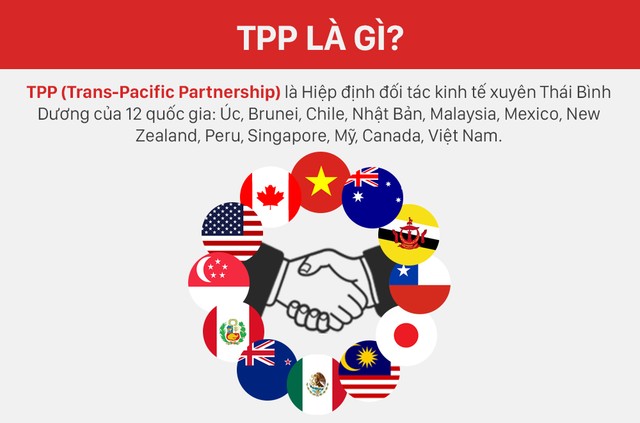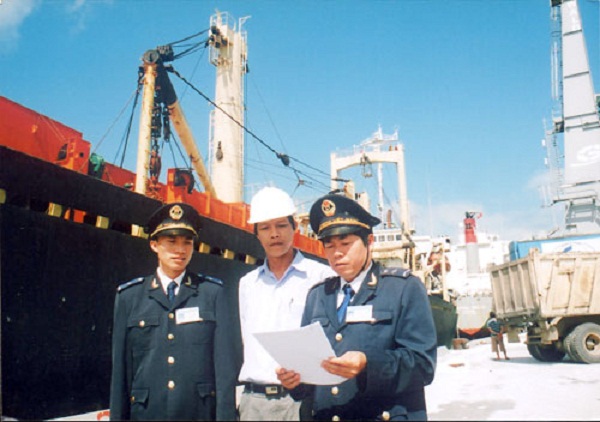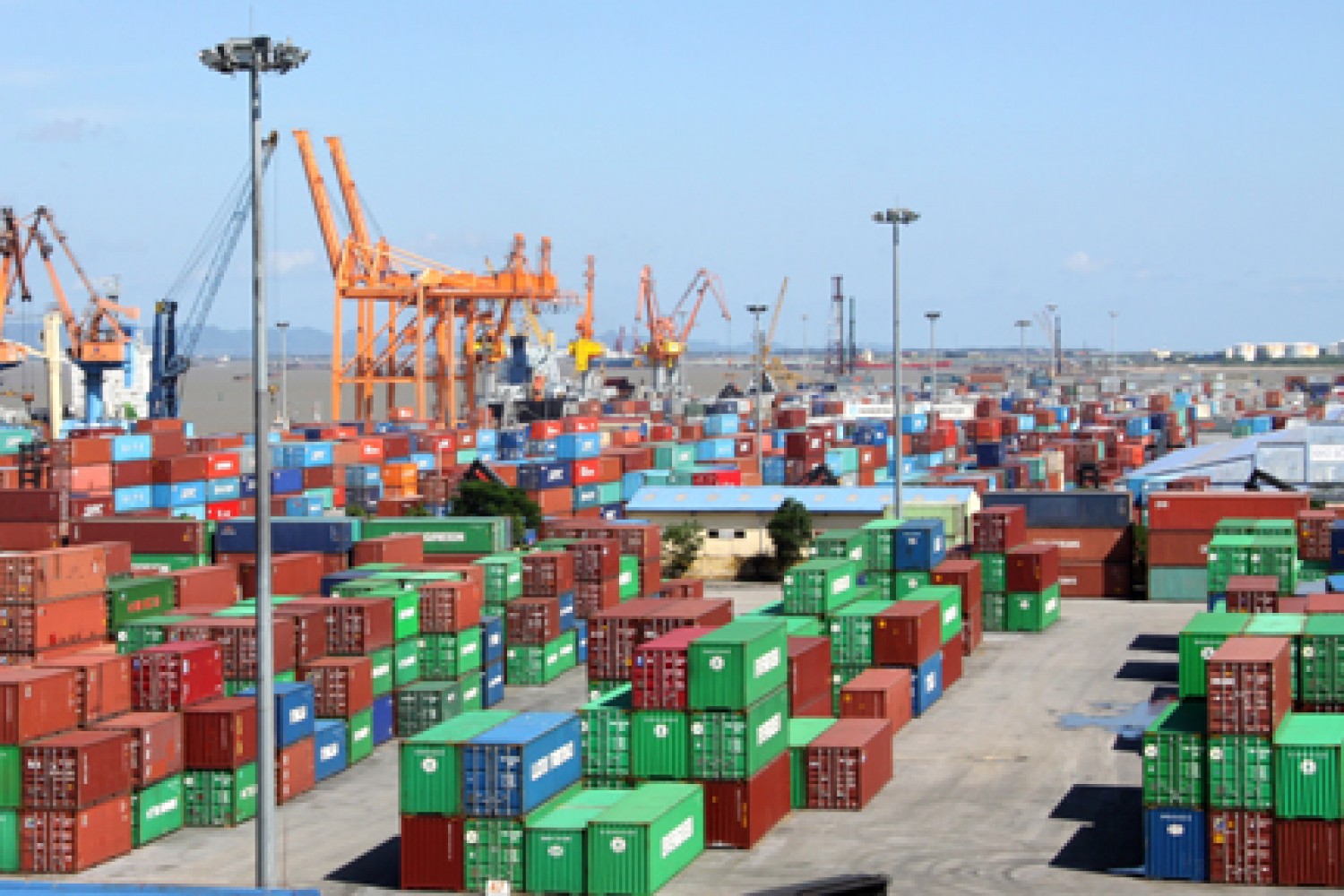TPP - Chapter 10 - Cross-Border Trade in Services
Chapter 10 of the TPP Agreement stipulates the scope of application, principles, and measures for the implementation of cross-border trade in services within the framework of the TPP Agreement.
CHAPTER 10
CROSS-BORDER TRADE IN SERVICES
Article 10.1: Definitions
In this Chapter:
Airport operation services refer to the provisioning of terminal, airport operation, and other infrastructural services that incur fees or involve contractual agreements. Airport operation services exclude air traffic control services;
Computer reservation system services are services provided via a computer system that contains information on flight schedules, available seats, fares, and ticketing rules, facilitating ticket booking and reservation;
Cross-border services trade or cross-border service provision refers to the supply of services: (a) from the territory of one Party into the territory of another Party; (b) in the territory of a Party to an individual of the other Party; or (c) by a national of one Party operating in the territory of another Party, except where the service provision in a Party's territory is secured via investment measures;
Enterprise means an enterprise defined in Article 1.3 (General Definitions) and includes a branch of an enterprise;
Enterprise of a Party is an enterprise established or organized under the law of one Party, or a branch located within the territory of a Party and carrying out business activities there;
Ground handling services consist of the paid provision or contractual services at an airport, including: representation, management, and supervision for airlines; passenger transportation; luggage transportation; aircraft boarding stair services; food services (except food preparation); loading and unloading of cargo and mail; aircraft refueling; aircraft maintenance and cleaning; ground transportation; flight operations, flight team management, and flight planning. Ground handling services exclude self-handling services; security; repair and maintenance of aircraft; external maintenance, repair, and upkeep of aircraft; management or operation of essential centralized airport infrastructure such as de-icing facilities, fuel distribution systems, baggage transport systems, and fixed airport transport systems;
Measures adopted or maintained by a Party refer to measures enacted or maintained by: (a) central, regional, or local governments or authorities; or (b) non-governmental bodies exercising authority delegated by central, regional, or local governments or authorities;
Sales and marketing of air transport services refer to opportunities provided to air transport entities to freely sell and market air transport services, including market research, advertising, and distribution activities. These activities exclude the determination of air transport service prices or conditions;
Services provided in the exercise of governmental authority are any services supplied neither on a commercial basis nor in competition with one or more service suppliers;
Service supplier of a Party means an individual of a Party who seeks to provide or is providing a service;
Specialty air services refer to specialized commercial activities involving aircraft for purposes other than transporting goods or passengers, including helicopter firefighting, flight training, sightseeing flights, chemical spraying, surveying, mapping, photography, parachute jumping, glider towing, and aerial heavy-lift helicopter services used in logging and construction, along with other aviation services for the agriculture, industrial, and inspection sectors.
Article 10.2: Scope
- This Chapter applies to measures adopted or maintained by a Party that may affect cross-border services trade provided by service suppliers of another Party. Such measures include those that may impact:
(a) the production, distribution, marketing, sale, or delivery of services;(b) the procurement or use of services or the payment for services;(c) access to and use of distribution networks, transportation, or telecommunications services related to the supply of services;(d) the presence of service suppliers of the other Party within the territory of a Party; and(e) guarantees or other financial instruments necessary for the provision of services.
- In addition to the provisions in paragraph 1:
(a) the provisions of Article 10.5 (Market Access), Article 10.8 (Domestic Regulations), and Article 10.1 (Transparency) shall also apply to measures adopted or maintained by a Party affecting the supply of services within the territory of that Party via investment secured measures; and(b) the provisions of Annex 10-B (Express Delivery Services) shall also apply to measures adopted or maintained by a Party affecting the supply of express delivery services, regardless of whether such services are provided via investment secured measures.
- This Chapter does not apply to:
(a) financial services as defined in Article 11.1 (Definitions). However, the provisions of paragraph 2(a) shall apply if financial services are provided through secured investments but not as investments secured into financial institutions as defined in Article 11.1 (Definitions) within the territory of a Party to the Agreement;(b) government procurement;(c) services provided in the exercise of governmental authority;(d) policies, subsidies, or assistance programs of a Party to the Agreement, including loans, guarantees, and government-supported insurance.
-
This Chapter does not bind any Party to the Agreement to any obligations regarding nationals of another Party seeking access to the labor market or long-term employment within its territory nor does it confer rights upon such individuals regarding access to or acquisition of employment.
-
This Chapter does not apply to air services, specifically domestic and international air transport services, whether scheduled or non-scheduled, or related services supporting air transport services, excluding:
(a) aircraft repair and maintenance services during which the aircraft is not operational, except for external maintenance services;(b) the sale and marketing of air transport services;(c) computer reservation system services;(d) specialty air services;(e) airport operation services; and(f) ground handling services.
-
In case of a conflict between this Chapter and a bilateral or multilateral air service agreement involving two or more Parties to this Agreement, the terms of the air service agreement shall prevail for determining the rights and obligations of the Parties to this Agreement who are signatories to that agreement.
-
If two or more Parties to this Agreement have similar obligations under this Agreement and a bilateral or multilateral air service agreement, dispute resolution procedures under this Agreement may proceed only after all dispute resolution procedures under the other agreement have been exhausted.
-
If the Annex on Air Transport Services of the General Agreement on Trade in Services (GATS) is amended, the Parties shall jointly review the new definitions to align the definitions in this Agreement with those, if deemed necessary.
Article 10.3: National Treatment Principle
-
Each Party shall accord to services and service suppliers of the other Party treatment no less favorable than that it accords, in like circumstances, to its own services and service suppliers.
-
For greater certainty, the treatment by a Party concerning another Party as specified in paragraph 1 at the regional government level means treatment no less favorable than the most-favored-nation treatment the regional authority accords to the service suppliers of the Party where that regional authority operates.
Article 10.4: Most-Favored-Nation Treatment Principle
Each Party shall accord to services and service suppliers of the other Party treatment no less favorable than that it accords, in like circumstances, to services and service suppliers of any other Party or non-Party to the Agreement.
Article 10.5: Market Access
Neither Party shall adopt or maintain, at the regional or national level, measures such as:
(a) measures imposing limitations on:
(i) the number of service suppliers, whether in the form of numerical quotas, monopolies, exclusive service suppliers, or economic needs tests;(ii) the total value of service transactions or assets in the form of numerical quotas or economic needs tests;(iii) the total number of service operations or the total quantity of service output in the form of designated numerical units or economic needs tests; or(iv) the total number of individuals that may be employed in a particular service sector or the total number of individuals a service supplier may employ and who are necessary and directly related to the supply of a particular service in the form of numerical quotas or economic needs tests; or
(b) measures restricting or requiring specific legal forms or joint ventures through which a service supplier may supply a service.
Article 10.6: Local Presence
Neither Party shall require a service supplier of the other Party to establish or maintain a representative office or any form of business enterprise, or to reside in its territory, as a condition for the cross-border supply of a service.
Article 10.7: Non-Conforming Measures
- Article 10.3 (National Treatment), Article 10.4 (Most-Favored-Nation Treatment), Article 10.5 (Market Access), and Article 10.6 (Local Presence) do not apply to:
(a) any non-conforming measure maintained by a Party at:
(i) the central government level as set out in its Schedule to Annex I;(ii) the regional government level as set out in its Schedule to Annex I; or(iii) the local government level;
(b) the continuation or prompt renewal of any non-conforming measure referred to in sub-paragraph (a); or(c) the amendment of any non-conforming measure referred to in sub-paragraph (a) provided that the amendment does not decrease the conformity of the measure as it existed immediately before the amendment with Article 10.3 (National Treatment), Article 10.4 (Most-Favored-Nation Treatment), Article 10.5 (Market Access), or Article 10.6 (Local Presence).
-
Article 10.3 (National Treatment), Article 10.4 (Most-Favored-Nation Treatment), Article 10.5 (Market Access), and Article 10.6 (Local Presence) do not apply to measures that a Party adopts or maintains with respect to sectors, sub-sectors, or activities, as set out in its Schedule to Annex II.
-
If a Party considers that a measure applied by another Party’s regional authority under sub-paragraph 1(a)(ii) causes serious impediments to the cross-border supply of services to its service suppliers, it may request discussions on the measure. The Parties shall engage in discussions to exchange information regarding the measure and consider necessary and appropriate actions.
Article 10.8: Domestic Regulation
-
Each Party shall ensure that all measures of general application affecting trade in services are administered in a reasonable, objective, and impartial manner.
-
To ensure that measures relating to qualification requirements and procedures, technical standards, and licensing requirements do not constitute unnecessary barriers to trade in services, recognizing its right to regulate and introduce new regulations on the supply of services to meet its policy objectives, each Party shall strive to ensure that such measures:
(a) are based on objective and transparent criteria, such as competence and the ability to supply the service; and(b) are not more burdensome than necessary to ensure the quality of the service.
-
In determining compliance with its obligations under paragraph 2, a Party shall use relevant international standards established by relevant international organizations.
-
If a Party requires authorization for the provision of a service, it shall ensure that its competent authorities:
(a) within a reasonable period of time after the submission of an application that is considered complete under its domestic laws, inform the applicant of the decision concerning the application;(b) establish a clear timeframe for processing applications where possible;(c) if the application is rejected, inform the applicant of the reasons indirectly or upon request;(d) upon request from the applicant, provide information promptly on the status of the application;(e) allow the applicant, where appropriate, to correct any deficiencies in the application and provide guidance on the necessary additional information; and(f) accept copies of documents authenticated according to its domestic laws in place of the originals where reasonable.
-
Each Party shall ensure that any licensing fees charged by its authorities are reasonable, transparent, and do not restrict the supply of services.
-
Where qualification requirements and procedures require examinations, each Party shall ensure that:
(a) examinations are scheduled at reasonable intervals; and(b) the timing of the examinations is appropriate to encourage interested individuals to apply.
-
Each Party shall make its procedures for assessing qualifications of professionals from the other Party ready for use.
-
Paragraphs 1 through 7 do not apply to non-conforming measures that do not comply with the obligations contained in Article 10.3 (National Treatment) or Article 10.5 (Market Access) because they are set out in a Party's Schedule to Annex I or Annex II.
-
If the results from negotiations pursuant to paragraph 4 of Article VI of the GATS, or similar results from multilateral negotiations that the Parties participate in, come into effect, the Parties shall jointly review the results for possible incorporation into this Agreement if deemed appropriate.Article 10.9: Recognition Provisions
-
For the purpose of meeting (wholly or partially) the standards or criteria of a Party participating in the Agreement for licensing or certification of service suppliers and pursuant to the provisions of paragraph 4, that Party may recognize the educational qualifications, professional experience, standards, or licenses or certificates granted or certified by another Party within the territory of that Party or by a non-Party. Such recognition may be achieved through harmonization of practices among the parties or through any other means, based on agreements or accords with the Party or non-Party concerned, or may be done through self-recognition.
-
In the case that a Party participating in the Agreement recognizes (whether through self-recognition or recognition by agreement or accord) the educational qualifications, professional experience, standards, licenses, or certificates granted or certified by another Party within the territory of another Party or a non-Party, the provisions of Article 10.4 (Most-Favored-Nation Treatment) shall not obligate the participating Party to recognize the educational qualifications, professional experience, standards, licenses, or certificates granted or certified by any other Party within the territory of that Party.
-
A Party participating in the Agreement that is simultaneously a member of existing or future agreements or accords as specified in paragraph 1 must provide sufficient opportunity for the other Parties to negotiate their participation in such agreements or accords when requested, or negotiate equivalent agreements or accords. In the case where a Party independently implements recognition, that Party must provide sufficient opportunity for the other Parties to demonstrate that the educational qualifications, professional experience, standards, licenses, or certificates granted or certified by the other Parties within their territories are adequately based to be recognized.
-
A Party participating in the Agreement shall not grant recognition to another Party if such recognition may cause discrimination between Parties or between a participating Party and a non-Party regarding the application of its standards or criteria for licensing or certification of service suppliers, or regarding the application of other disguised trade restrictions in services.
-
In accordance with the provisions of Annex 10-A (Professional Services), the Parties to the Agreement shall make efforts to facilitate cross-border trade in professional services through measures such as establishing a Professional Services Working Group.
Article 10.10: Denial of Benefits
-
A Party to the Agreement has the right to deny the benefits stated in this Chapter to service suppliers of the other Party if the service supplier is an enterprise owned or controlled by individuals of a non-Party, and the denying Party has the right to enact or maintain measures against the non-Party that prohibit transactions with that enterprise or may be violated or impeded if the benefits stated in this Chapter are granted to that enterprise.
-
A Party to the Agreement has the right to deny the benefits stated in this Chapter to service suppliers of the other Party if the service supplier is an enterprise owned or controlled by individuals of a non-Party or individuals of the denying Party that have no substantial business operations in the territory of the non-denying Party.
Article 10.11: Transparency
-
Each Party to the Agreement must maintain or establish appropriate mechanisms to respond to requests from interested parties concerning regulations applicable to the subjects covered in this Chapter.
-
In cases where a Party to the Agreement does not provide prior notification and the opportunity for public comment as prescribed in Article 26.2.2 (Transparency) on provisions related to the subjects covered in this Chapter, to the extent possible, the Party must provide or notify the reasons in writing explaining why such actions were not taken.
-
To the extent possible, each Party to the Agreement must provide a reasonable period between the publication of the final provisions and their effective dates.
Article 10.12: Payments and Transfers
-
Each Party to the Agreement shall allow all transfers and payments related to the cross-border supply of services to be made freely and promptly into and out of its territory.
-
Each Party to the Agreement shall allow all transfers and payments related to the cross-border supply of services to be made freely in a freely usable currency at the prevailing exchange rate at the time of the transfer.
-
Simultaneously, while adhering to the provisions in paragraphs 1 and 2, the Party to the Agreement has the right to prevent or suspend transfers or payments by applying its laws in a fair, non-discriminatory, and bona fide manner relating to:
(a) bankruptcy, insolvency, or protection of the rights of creditors;
(b) issuing or trading in securities, futures, options, or derivatives;
(c) financial reporting or accounting of transfers when necessary to assist in the enforcement of the law or aid financial regulators;
(d) criminal offenses; or
(e) ensuring compliance with judicial or administrative decisions.
Article 10.13: Other Matters
The Parties to the Agreement recognize the crucial role of aviation services in facilitating trade expansion and stimulating economic growth. Each Party may consider cooperating with other Parties through appropriate negotiations on the liberalization of aviation services, such as through agreements allowing air carriers to freely determine routes and frequencies.
Notes
-
To clarify, the provisions in this Chapter, including Annex 10-A (Professional Services), Annex 10-B (Express Delivery Services), and Annex 10-C (Ratchet Mechanism Incompatible Measures), are not subject to dispute resolution provisions between investors and member countries under Section B of Chapter 9 (Investment).
-
To clarify, regardless of how treatment is applied in “like circumstances” under Article 10.3 (National Treatment) or Article 10.4 (Most-Favored-Nation Treatment), the determination depends on the overall circumstances, where reasonable differentiation in treatment may be applied among services or service suppliers based on legitimate public welfare objectives.
-
Subparagraph (a)(iii) does not require measures by a Party that may limit investment into the supply of these services.
-
For Vietnam, Annex 10-C will apply.
-
To clarify, a Party to the Agreement may request consultations with another Party regarding incompatible measures applied by central authorities as identified in paragraph 1(a)(i).
-
"Relevant international organizations" are international bodies where the related authorities of all Parties to the Agreement are eligible for membership.
-
At this point, licensing fees do not include fees for the use of natural resources, payments made for auctions, tenders, or non-discriminatory preferential allocation, or allowable contributions for global service delivery.
-
Implementing the obligation to maintain or establish appropriate mechanisms should consider the budgetary and resource constraints of smaller regulatory agencies.
-
To clarify, the provisions at this Article are not governed by the provisions in Annex 9-E (Transfers).
-
To clarify, the provisions of this Article do not preclude a Party's application of its laws to mandatory social security, pension, or mandatory savings policies in a fair, non-discriminatory, and bona fide manner.
TABLE OF CONTENTS
TPP - Chapter 01 - General Provisions and Definitions
TPP - Chapter 02 - National Treatment and Market Access for Goods
TPP - Chapter 03 - Rules of Origin and Origin Procedures
TPP - Chapter 04 - Textiles and Apparel
TPP - Chapter 05 - Customs Administration and Trade Facilitation
TPP - Chapter 06 - Trade Remedies
TPP - Chapter 07 - Sanitary and Phytosanitary Measures
TPP - Chapter 08 - Technical Barriers to Trade
TPP - Chapter 10 - Cross-Border Trade in Services
TPP - Chapter 11 - Financial Services
TPP - Chapter 12 - Temporary Entry for Business Persons
TPP - Chapter 13 - Telecommunications
TPP - Chapter 14 - Electronic Commerce
TPP - Chapter 15 - Government Procurement
TPP - Chapter 16 - Competition Policy
TPP - Chapter 17 - State-Owned Enterprises and Designated Monopolies
TPP - Chapter 18 - Intellectual Property
TPP - Chapter 20 - Environment
TPP - Chapter 21 - Cooperation and Capacity Building
TPP - Chapter 22 - Competitiveness and Business Facilitation
TPP - Chapter 23 - Development
TPP - Chapter 24 - Small and Medium-Sized Enterprises
TPP - Chapter 25 - Regulatory Coherence
TPP - Chapter 26 - Transparency and Anti-Corruption
TPP - Chapter 27 - Administrative and Institutional Provisions
TPP - Chapter 28 - Dispute Settlement
TPP - Chapter 29 - Exceptions and General Provisions
- Cases of land rent exemption and reduction under the latest regulations in Vietnam
- Economic infrastructure and social infrastructure system in Thu Duc City, Ho Chi Minh City
- Regulations on ordination with foreign elements in religious organizations in Vietnam
- Increase land compensation prices in Vietnam from January 1, 2026
- Determination of land compensation levels for damage during land requisition process in Vietnam
- Who is permitted to purchase social housing according to latest regulations in Vietnam?
-

- TPP - Chapter 01 - General Provisions and Definitions
- 12:10, 11/07/2024
-

- TPP - Chapter 05 - Customs Administration and ...
- 12:10, 11/07/2024
-

- TPP - Chapter 04 - Textile and apparel goods
- 12:10, 11/07/2024
-

- TPP - Chapter 08 - Technical Barriers to Trade
- 12:10, 11/07/2024
-

- TPP - Chapter 07 - Sanitary and Phytosanitary ...
- 12:10, 11/07/2024
-

- Notable new policies of Vietnam effective as of ...
- 16:26, 11/04/2025
-
.Medium.png)
- Notable documents of Vietnam in the previous week ...
- 16:21, 11/04/2025
-
.Medium.png)
- Notable documents of Vietnam in the previous week ...
- 16:11, 02/04/2025
-
.Medium.png)
- Notable new policies of Vietnam to be effective ...
- 16:04, 02/04/2025
-
.Medium.png)
- Notable new policies of Vietnam effective from ...
- 14:51, 21/03/2025
 Article table of contents
Article table of contents
